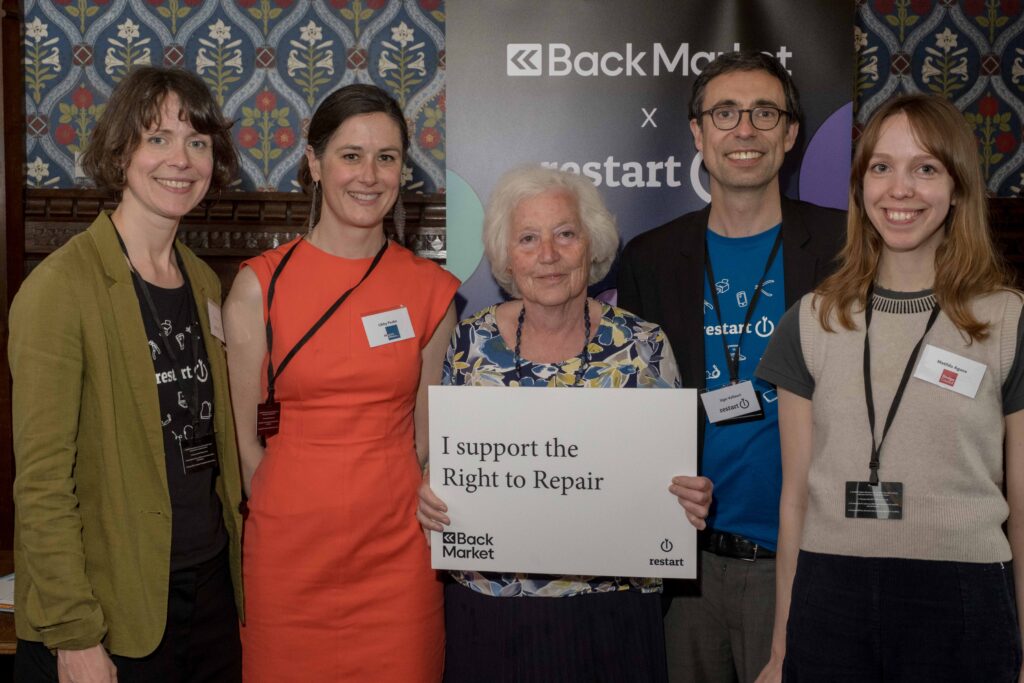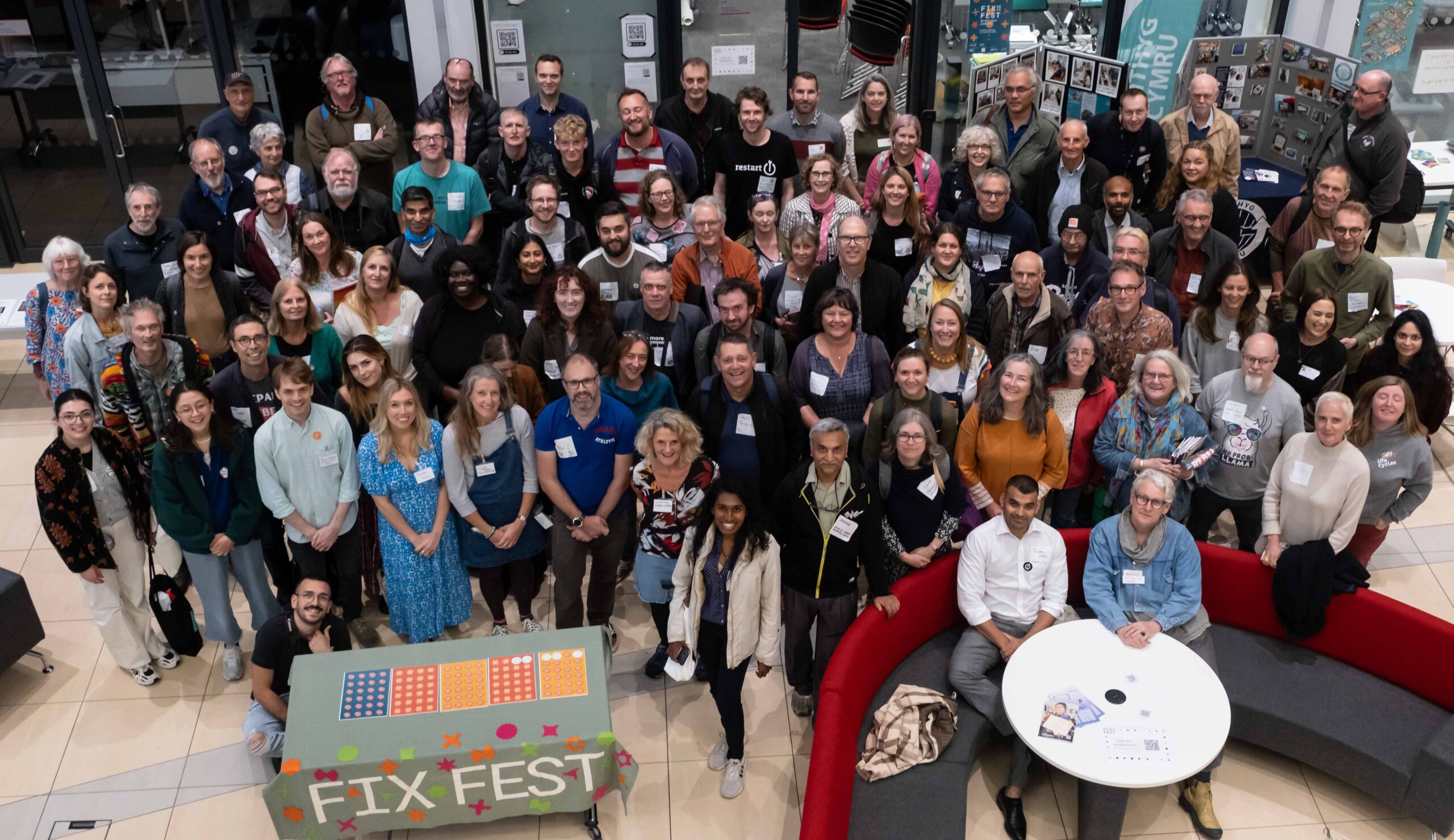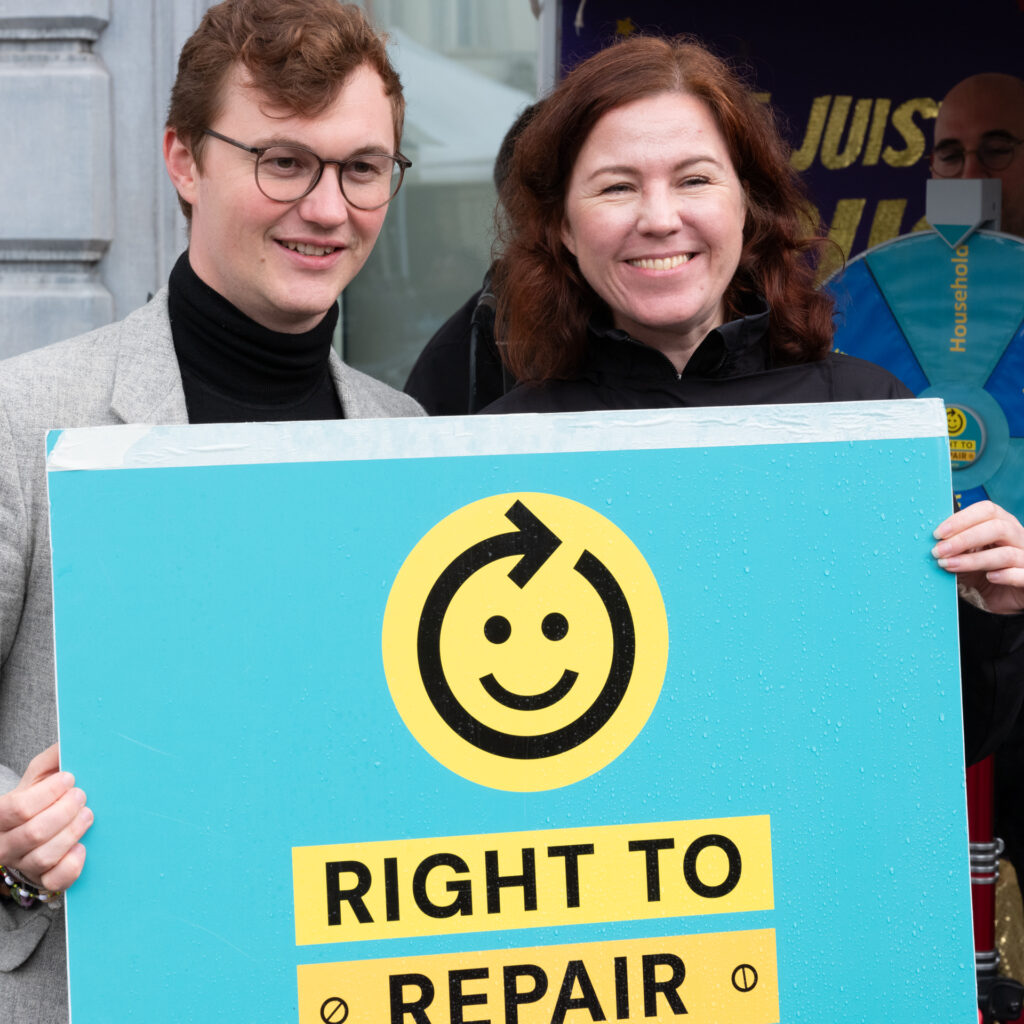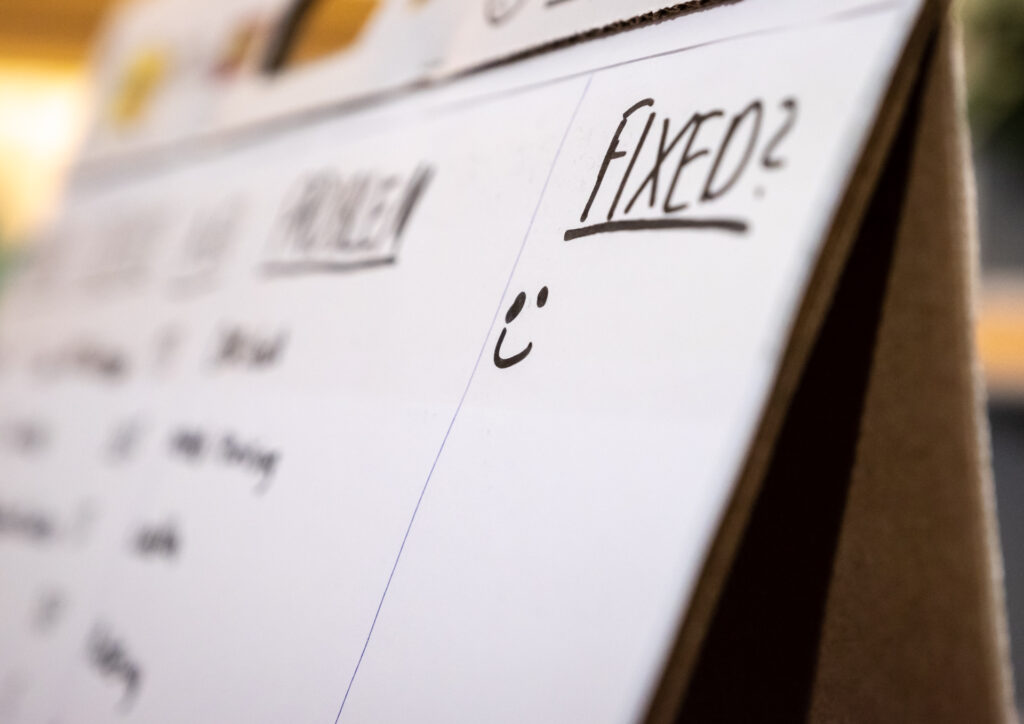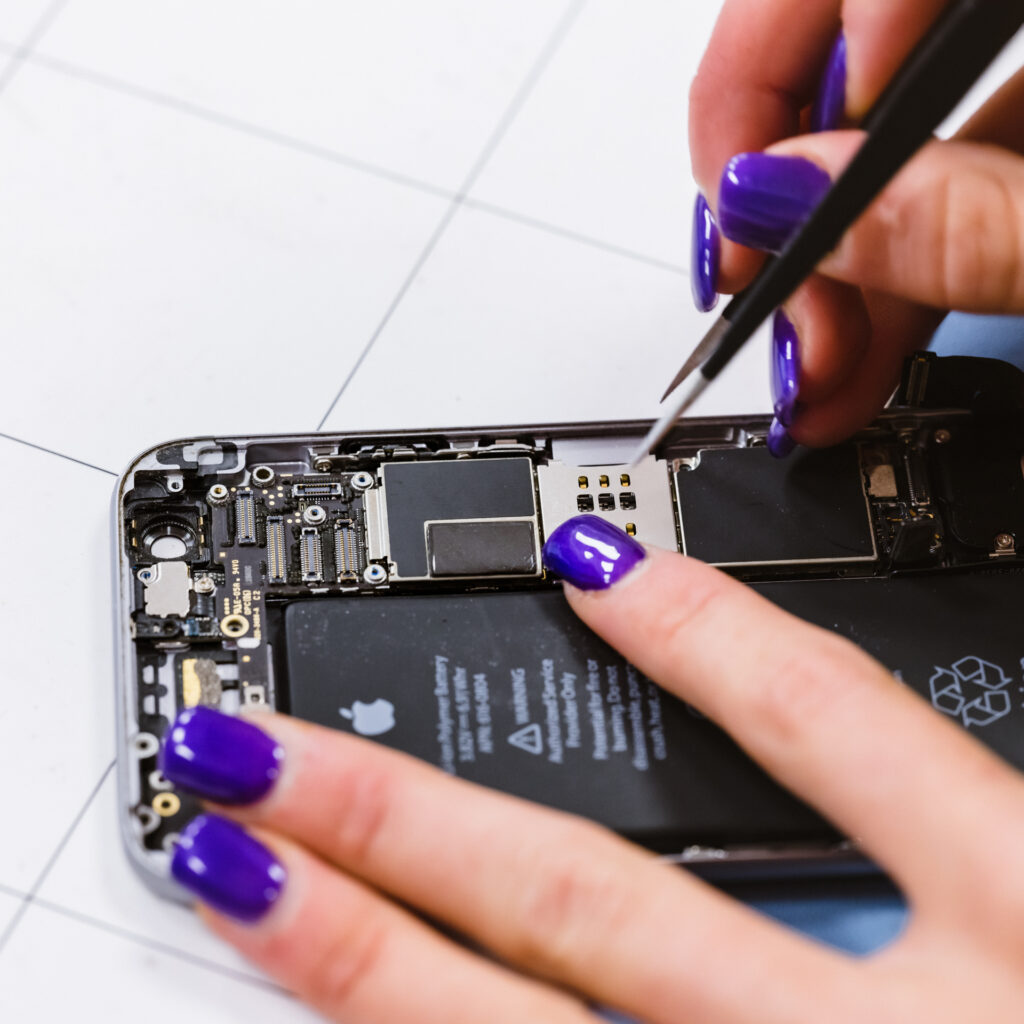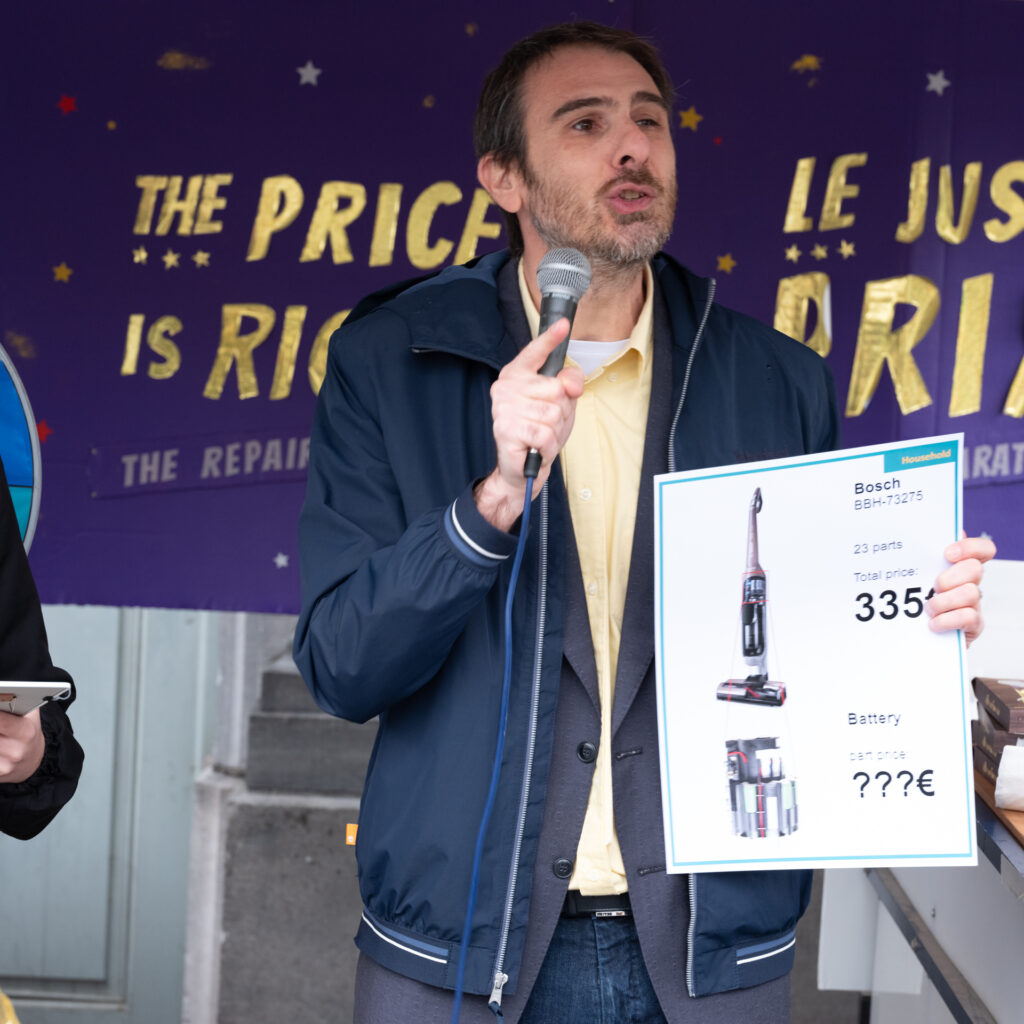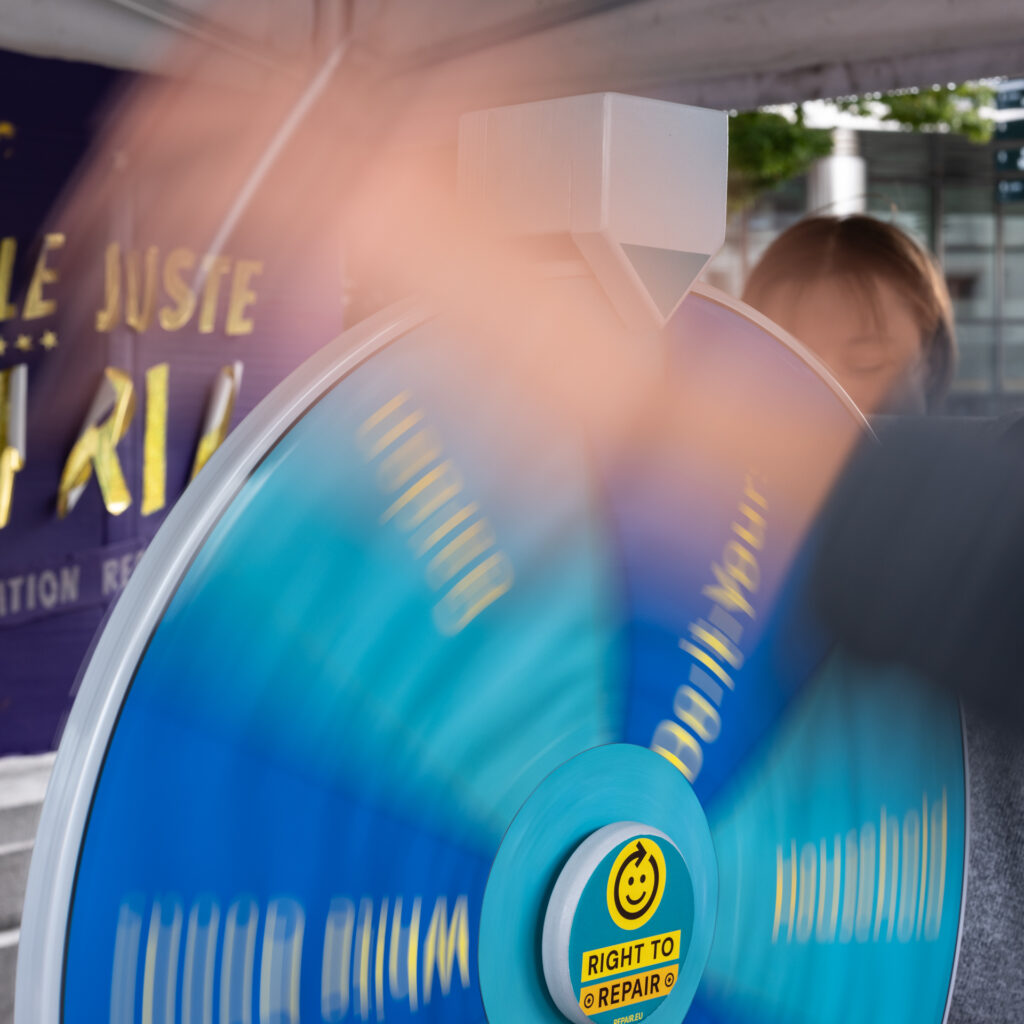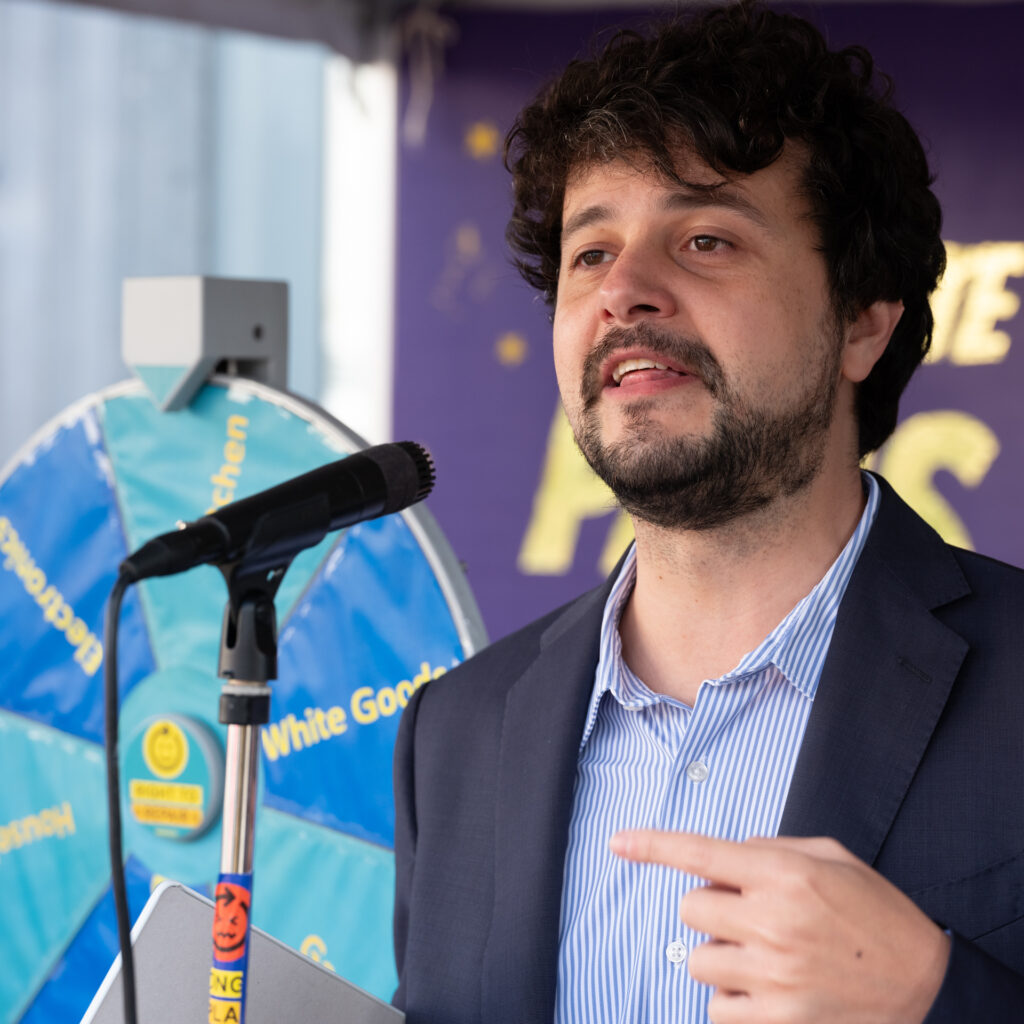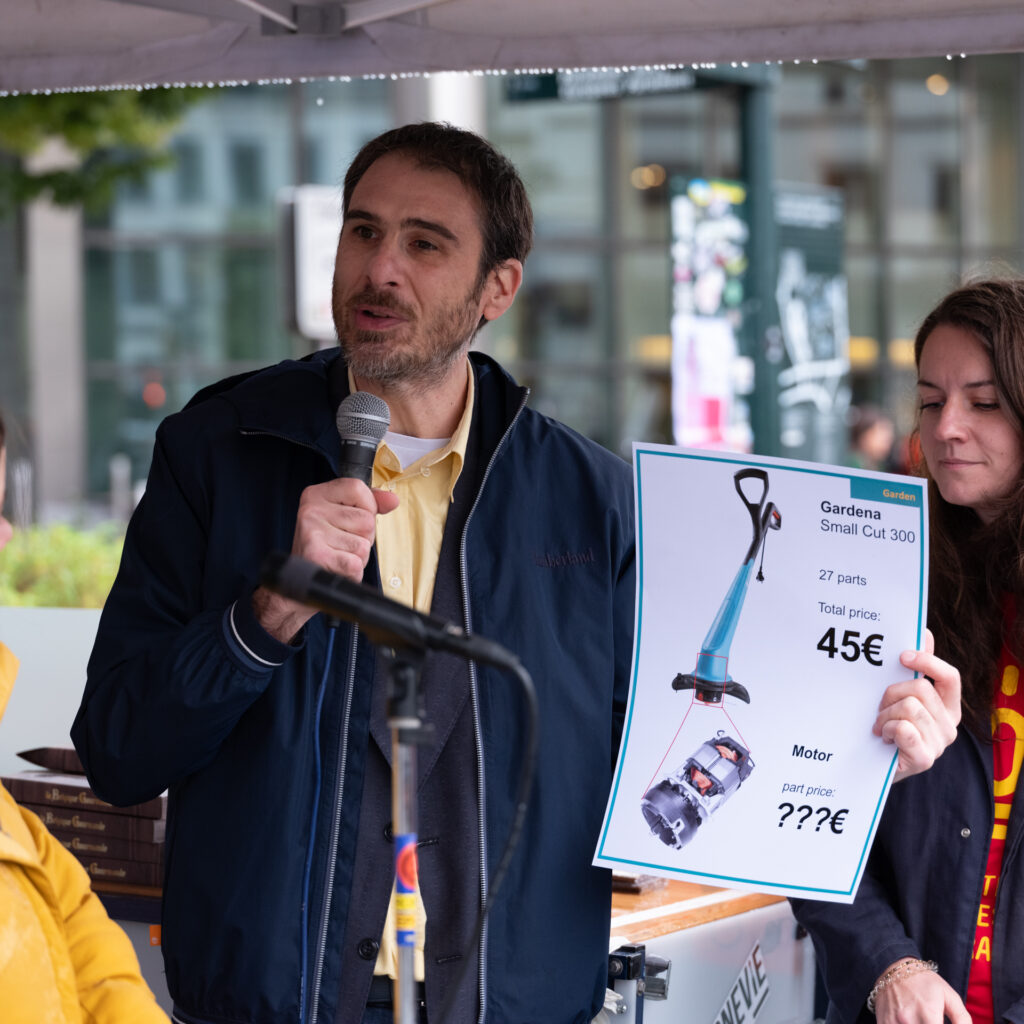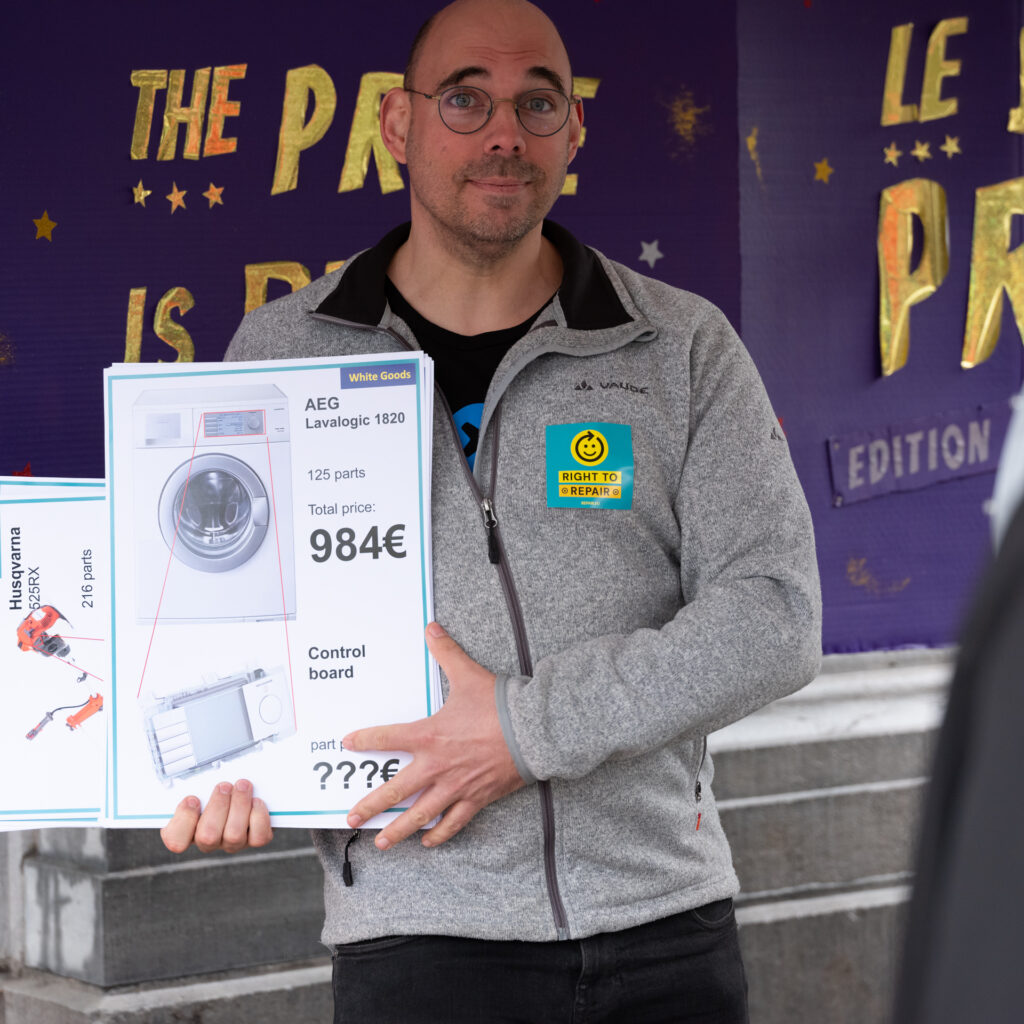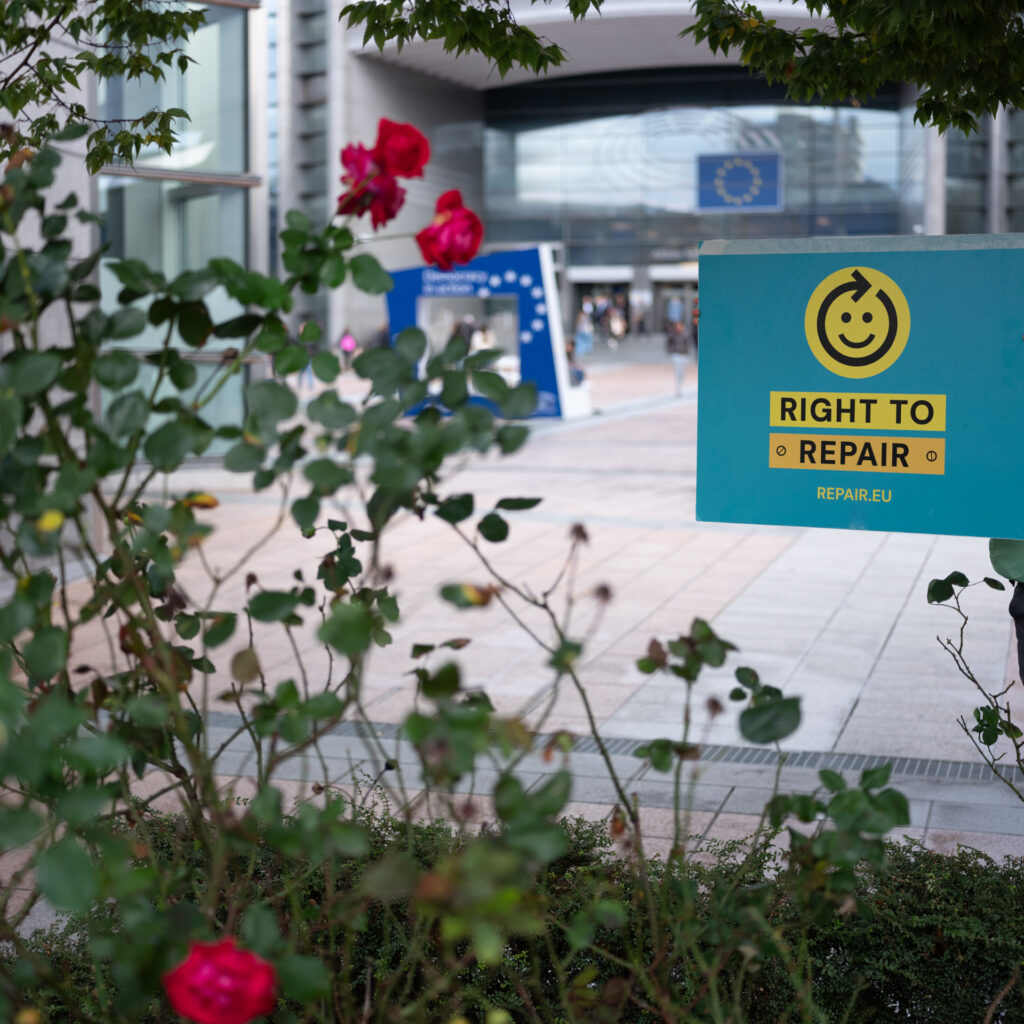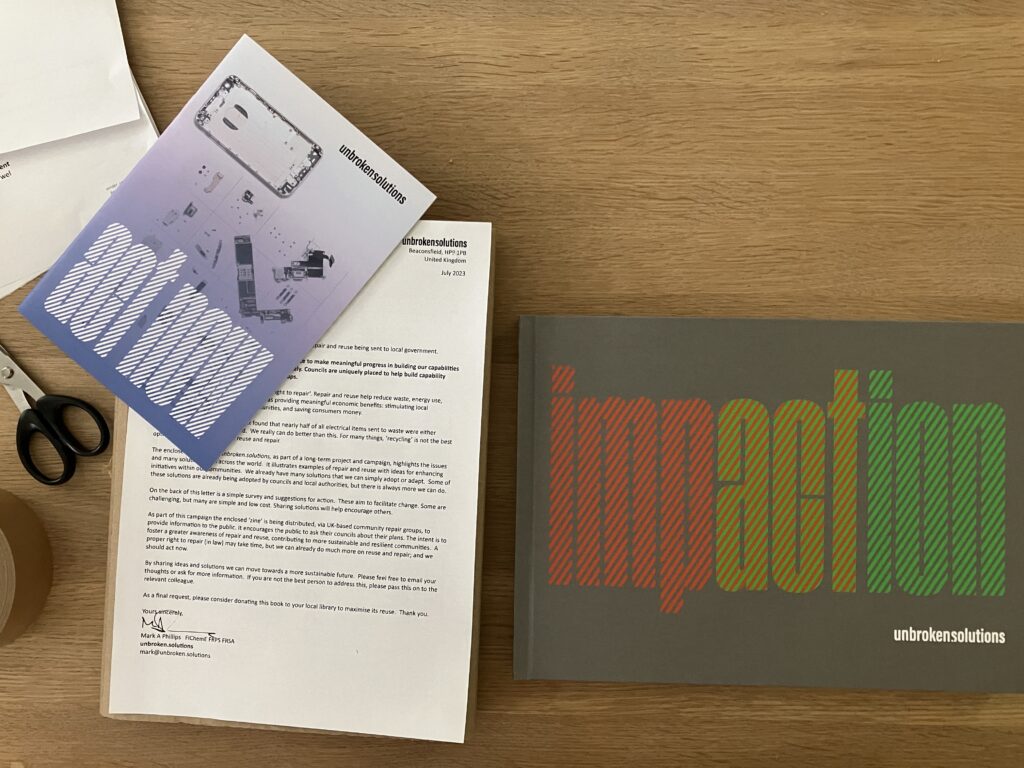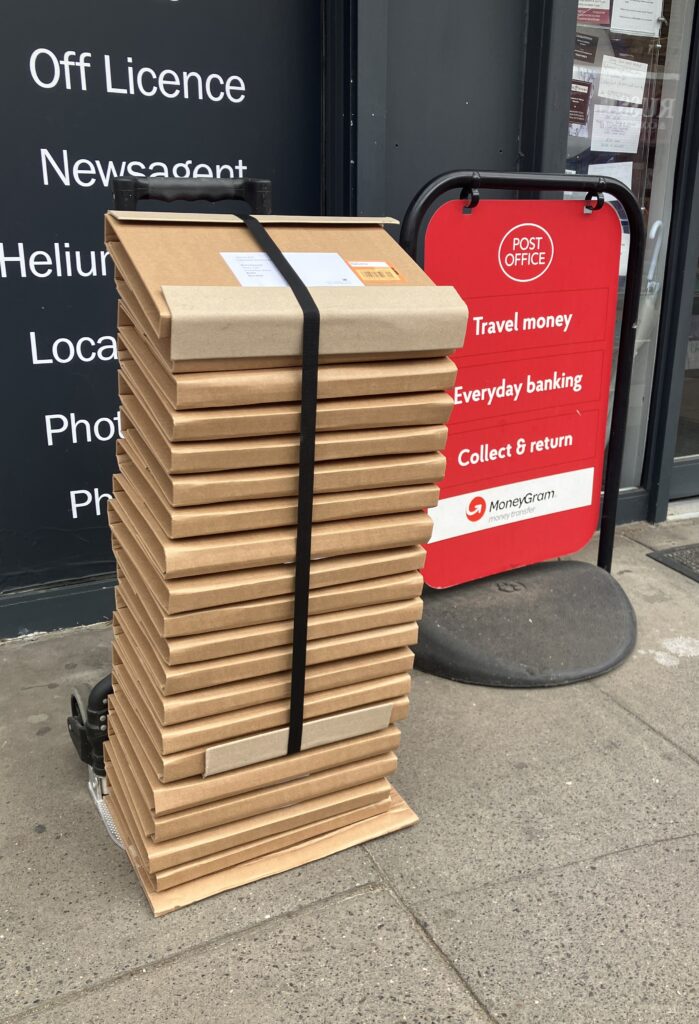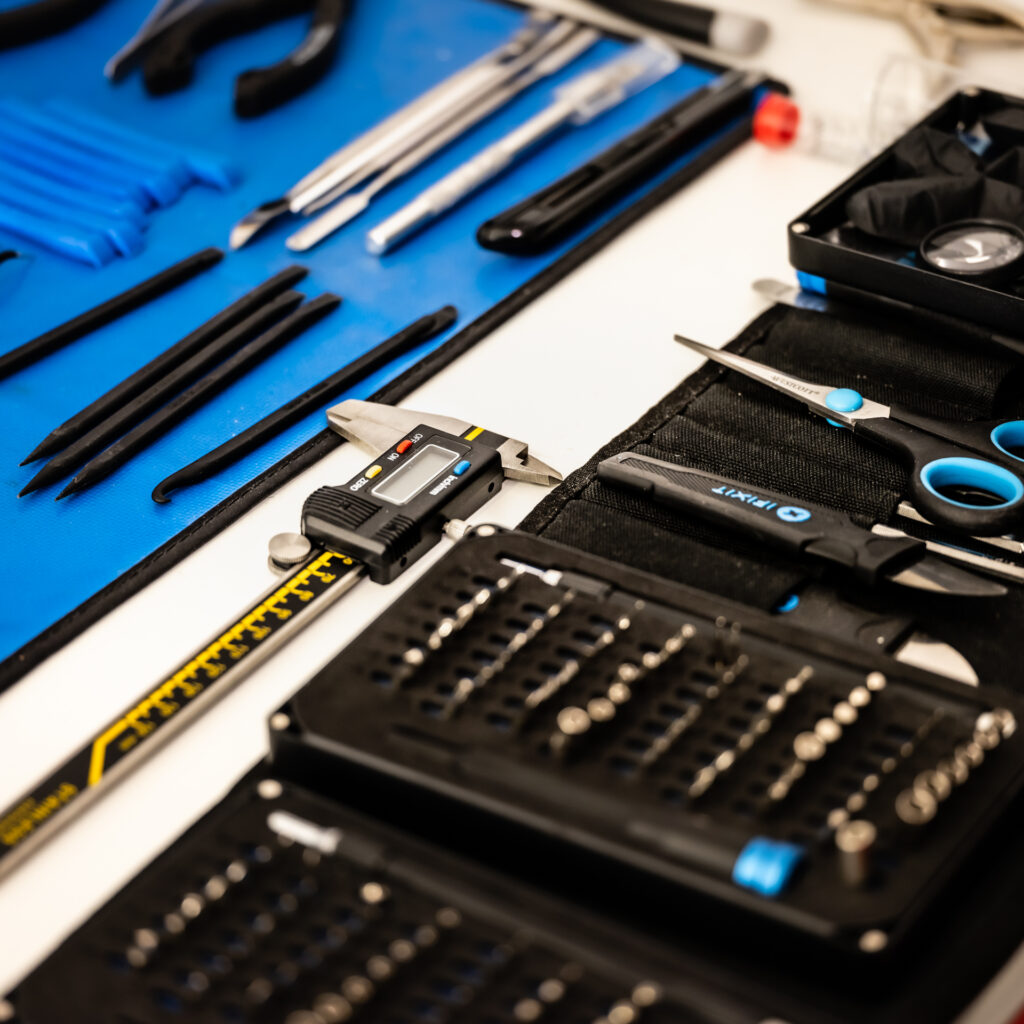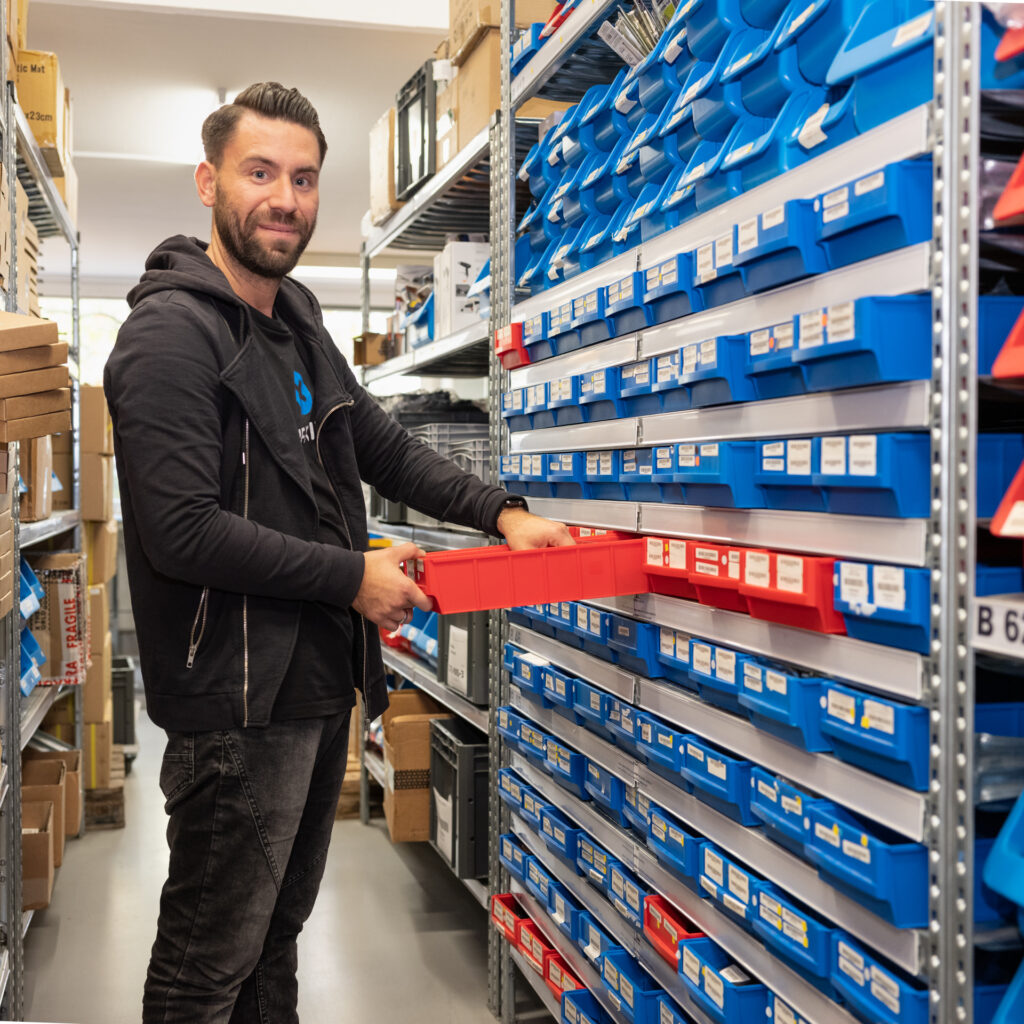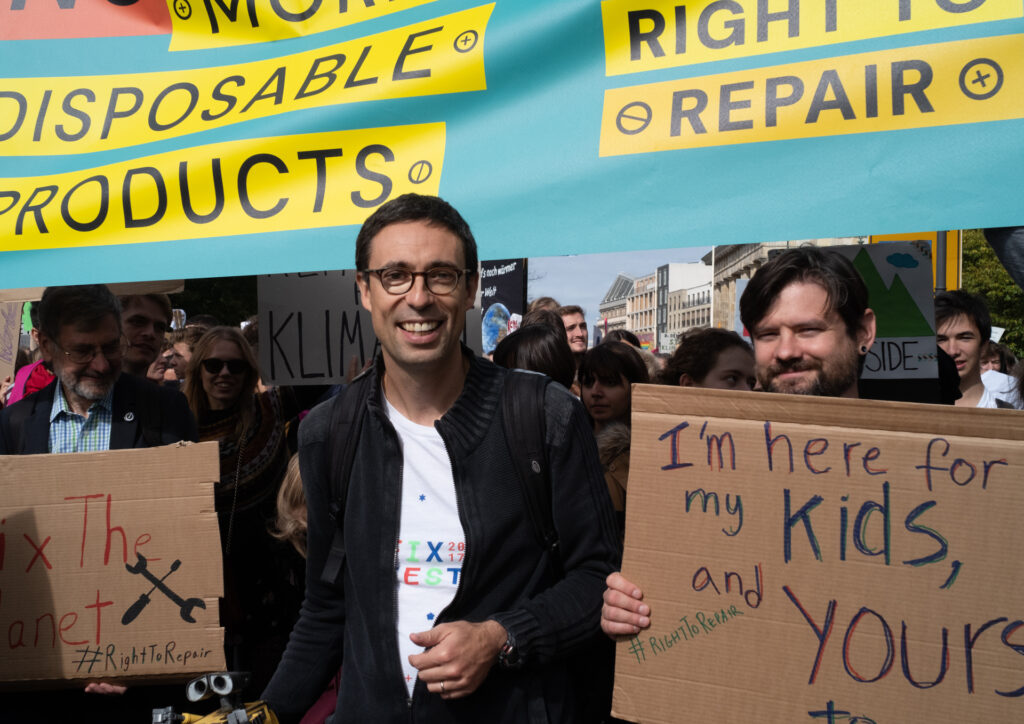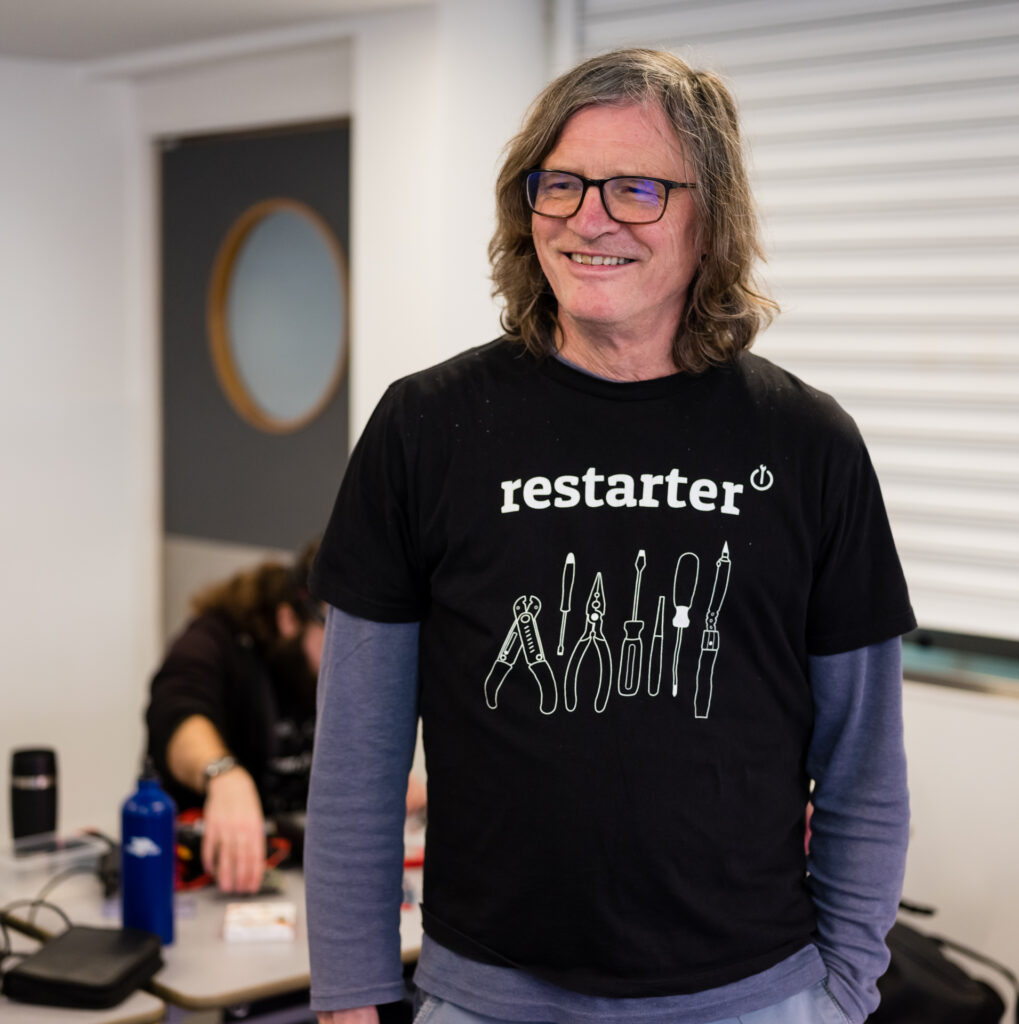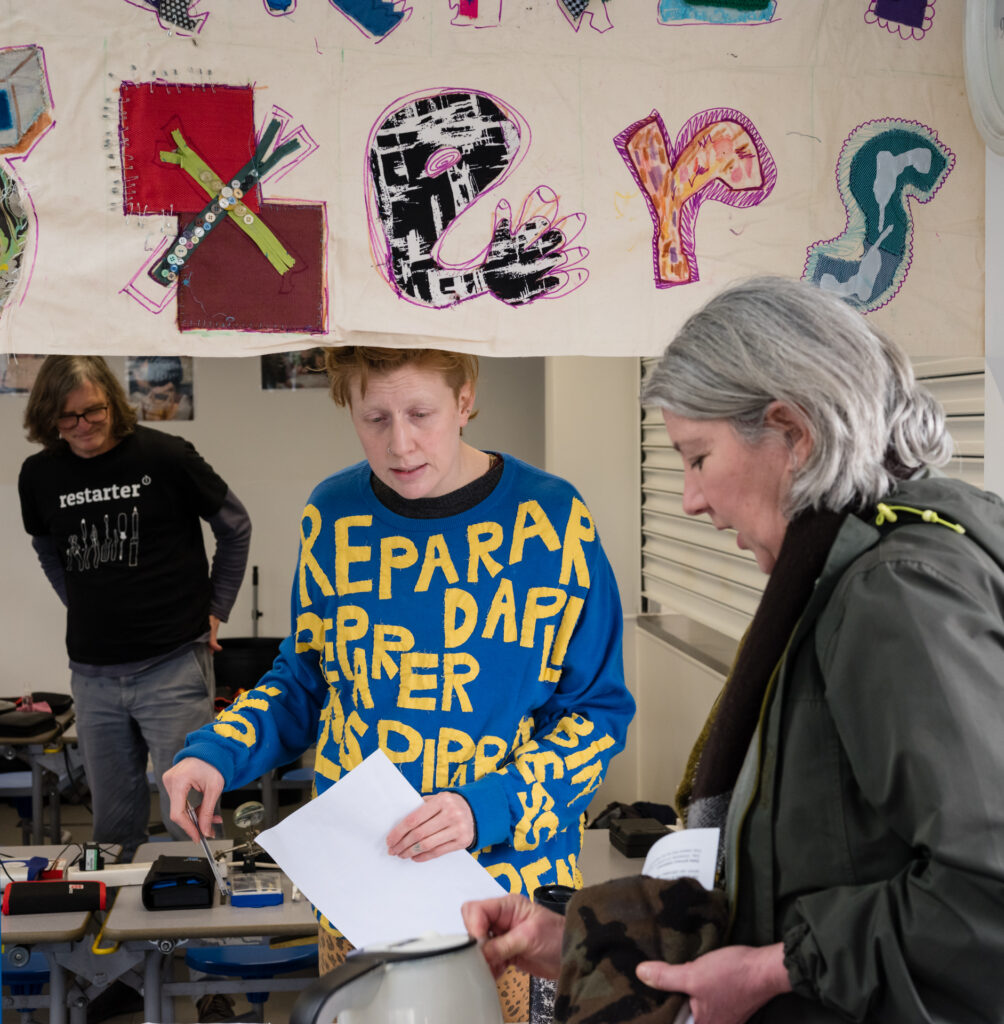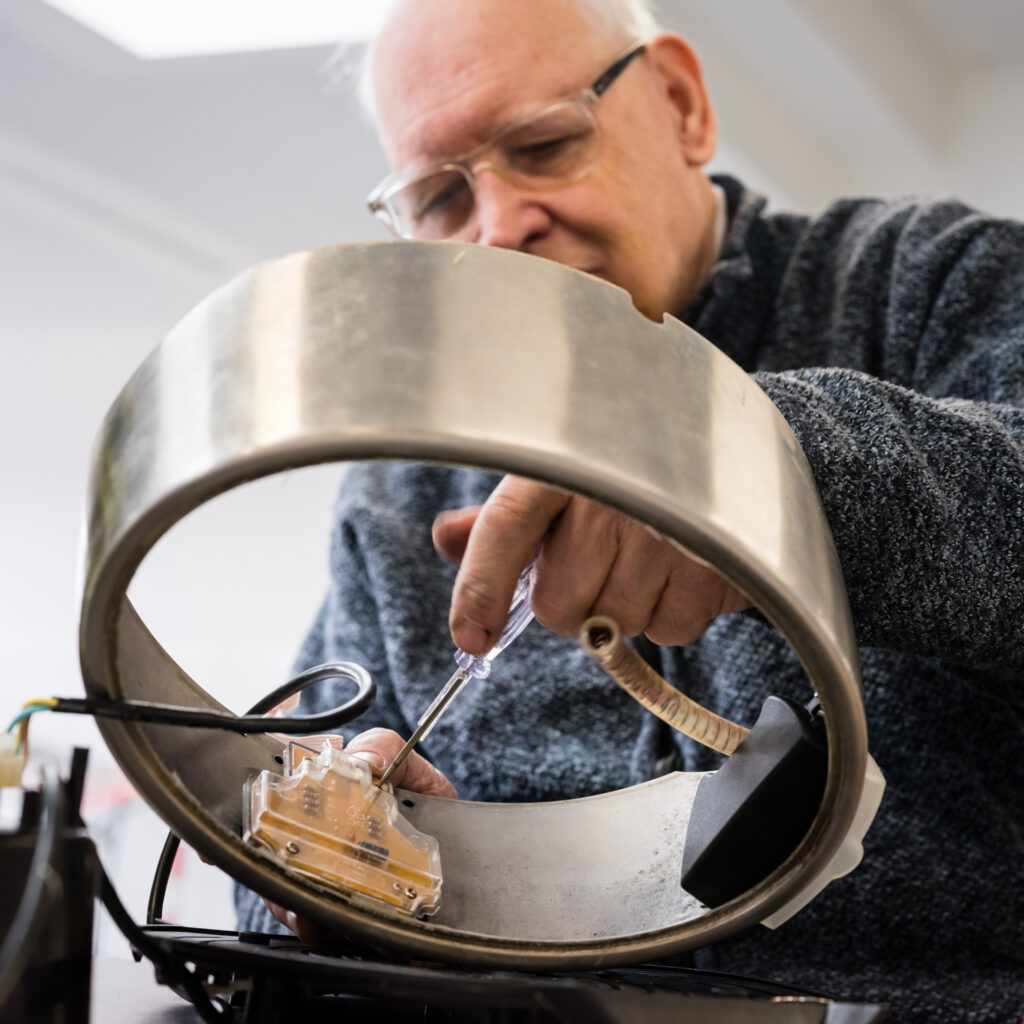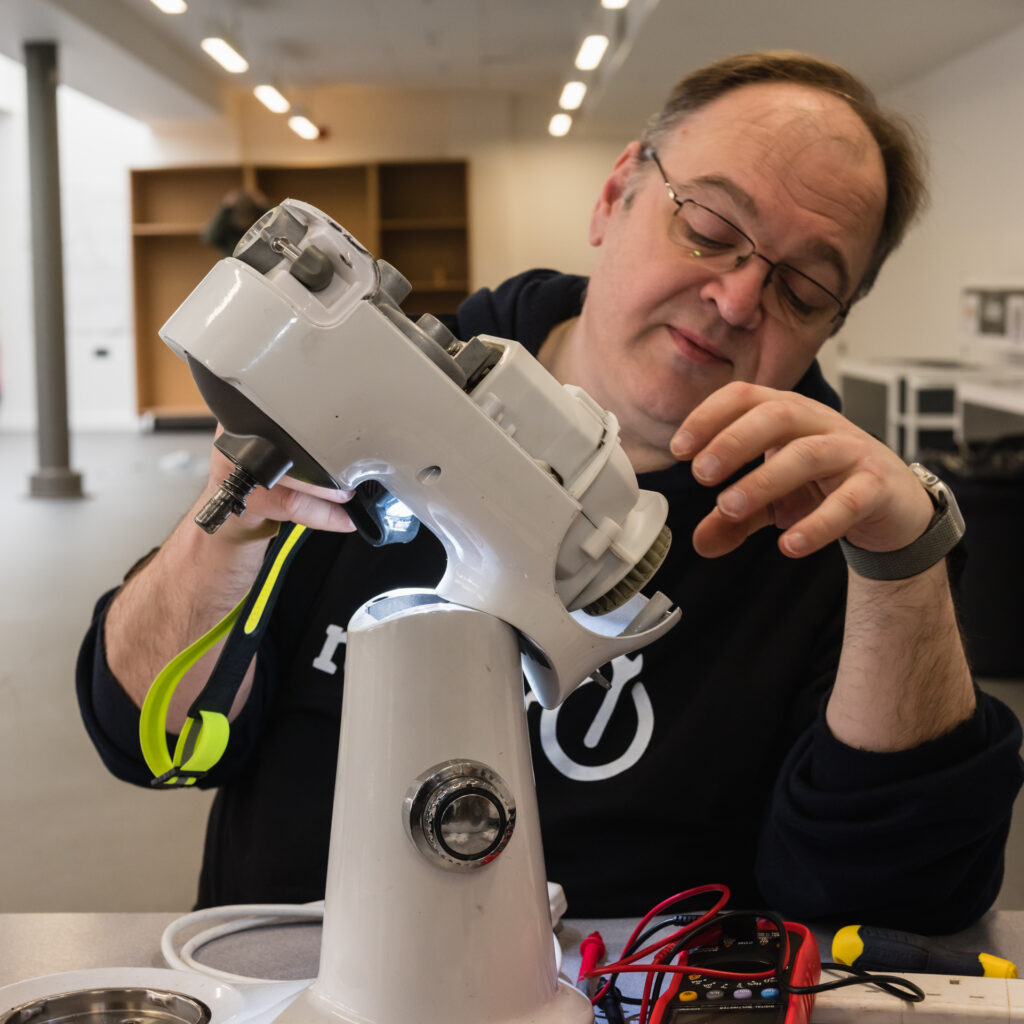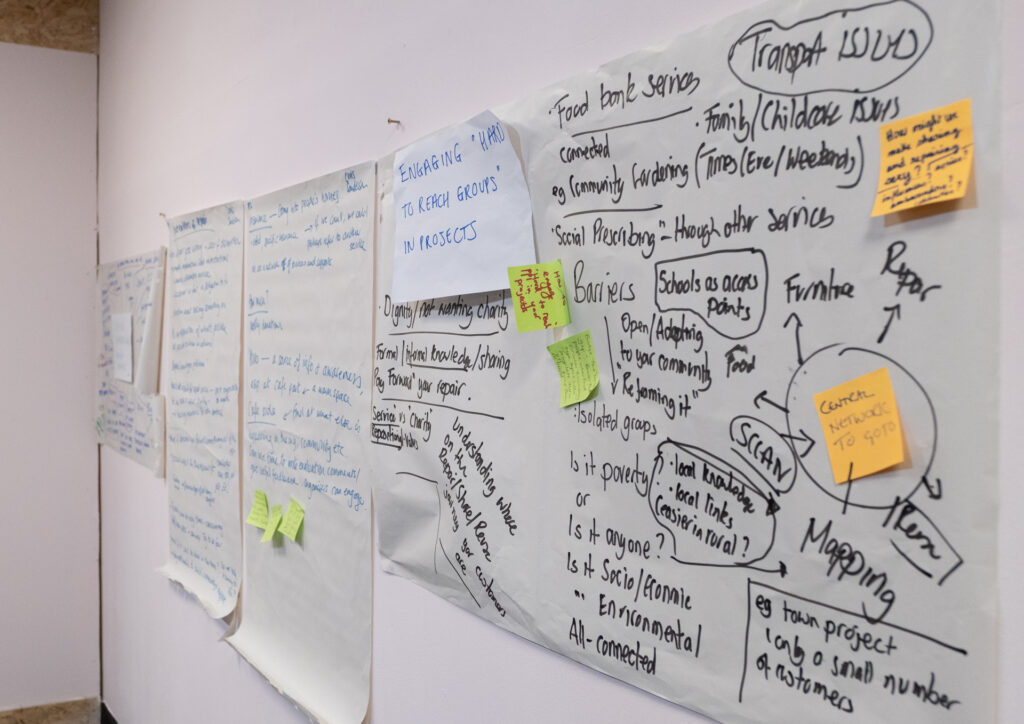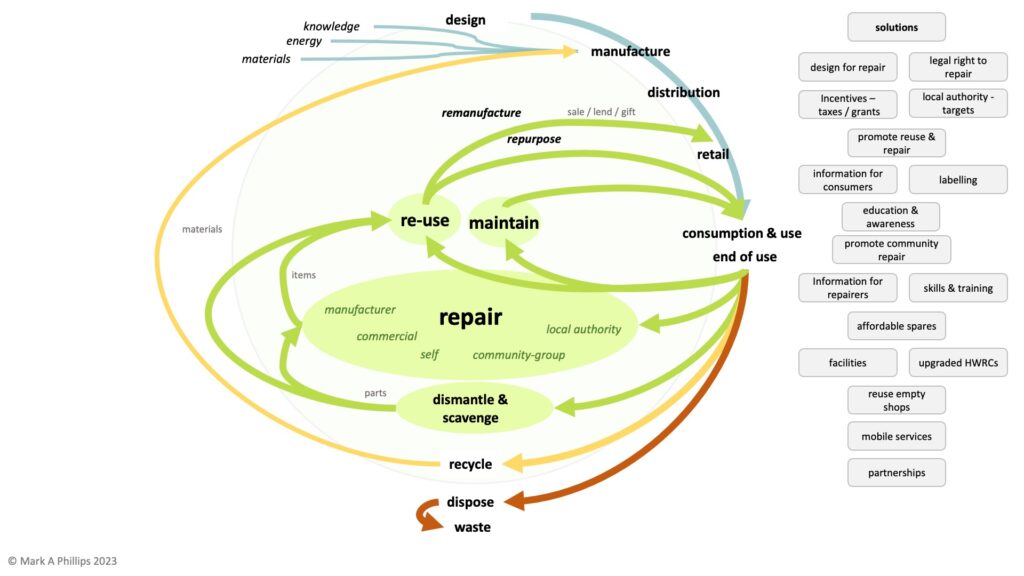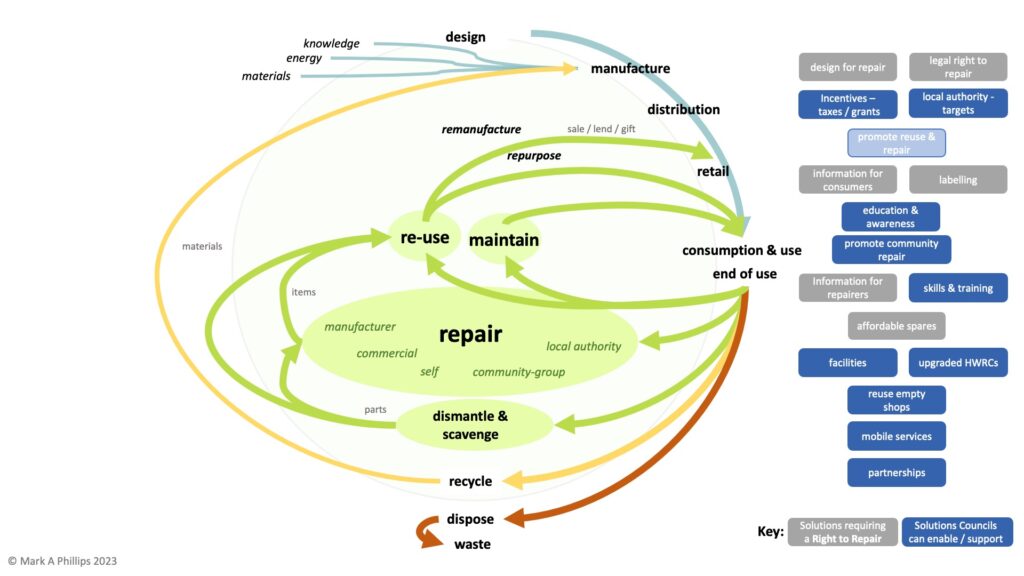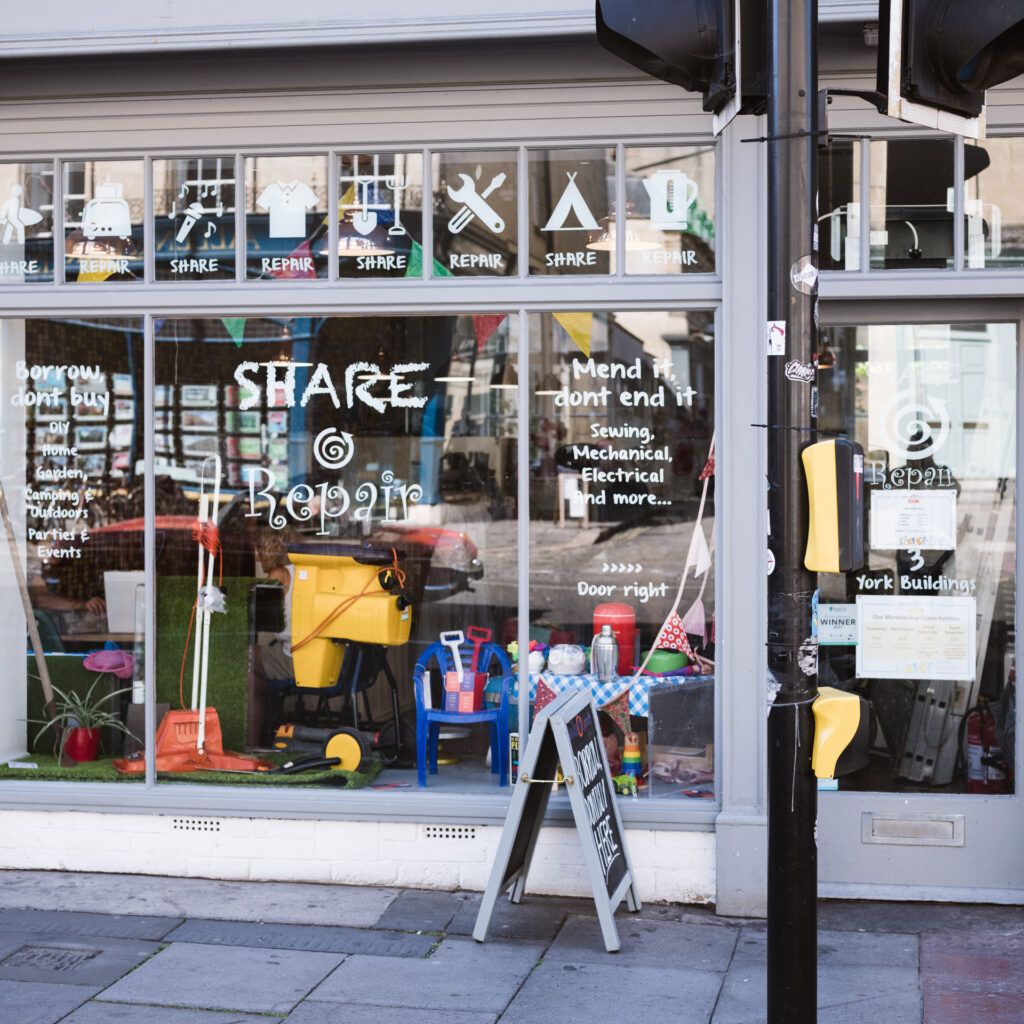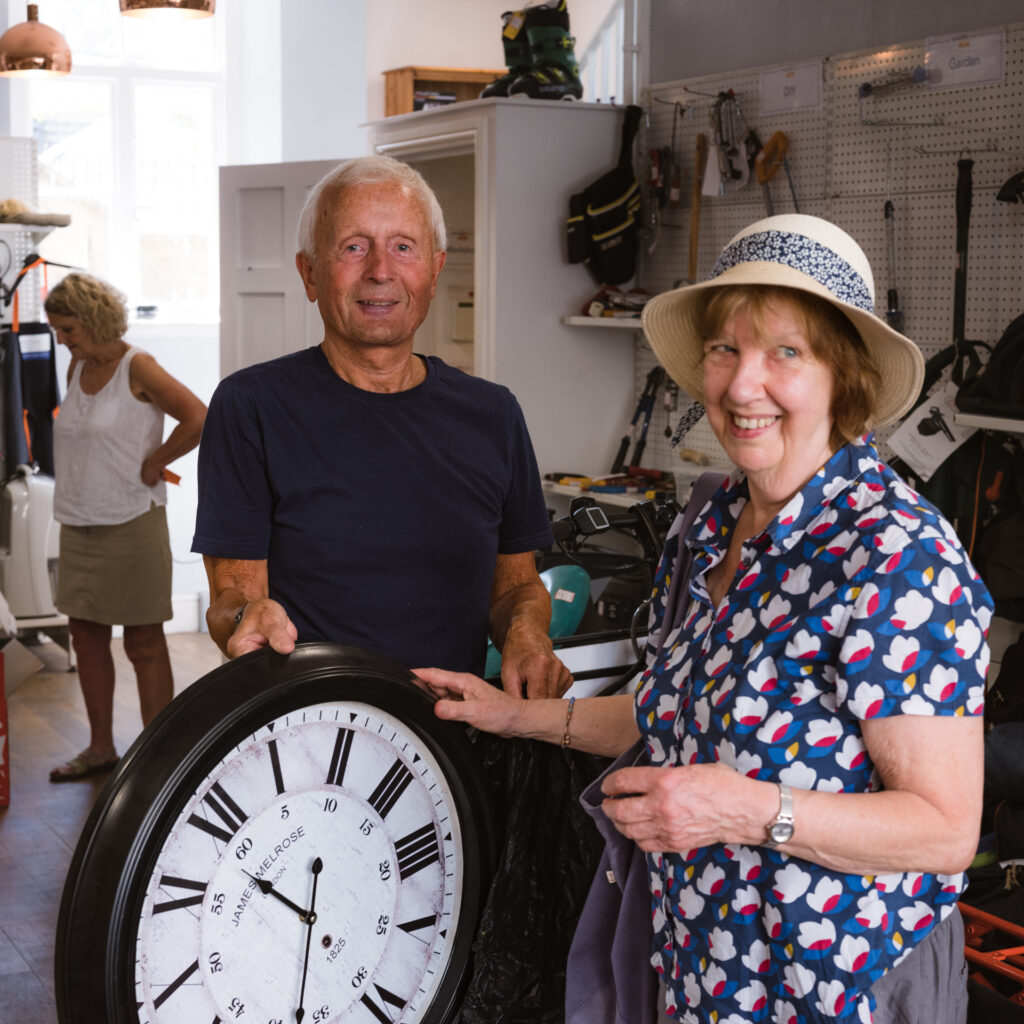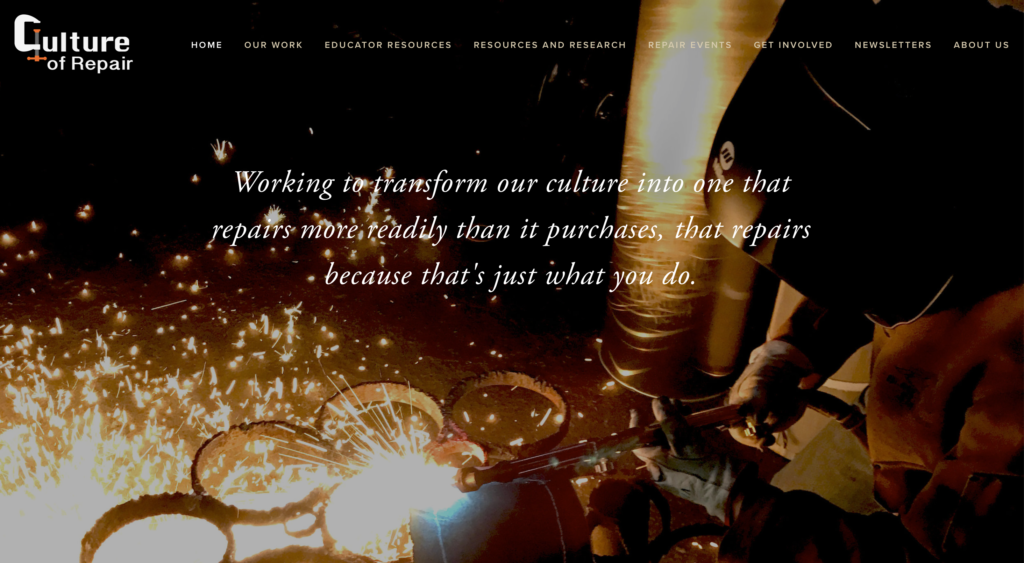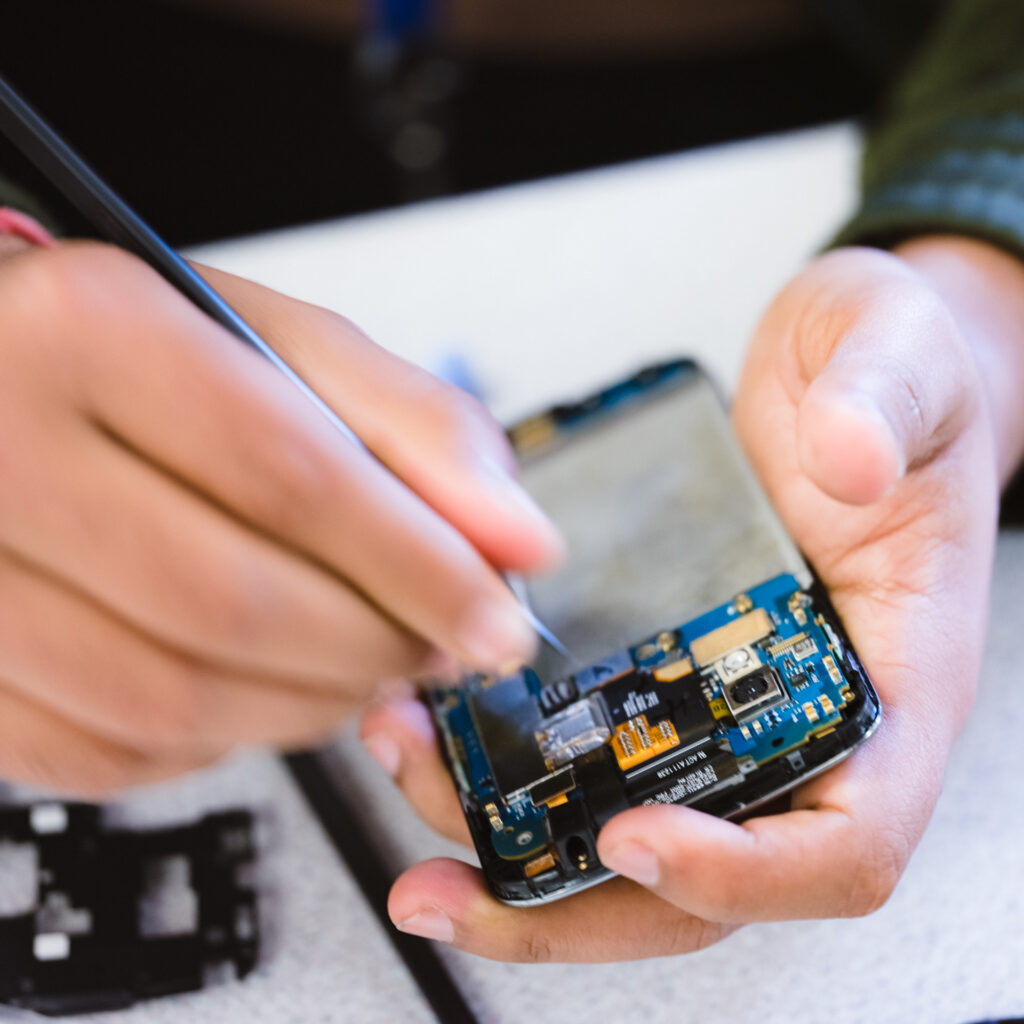The battle to get the ‘system’ to act!
Over the past few months I’ve given a talk at Riverfront Theatre in Newport with …. and held an exhibition and talk with WeFlock at No.1 Church Lane. Much of the project focus now is getting the work and the message ‘out there’, pushing the need to act rather than more photography.
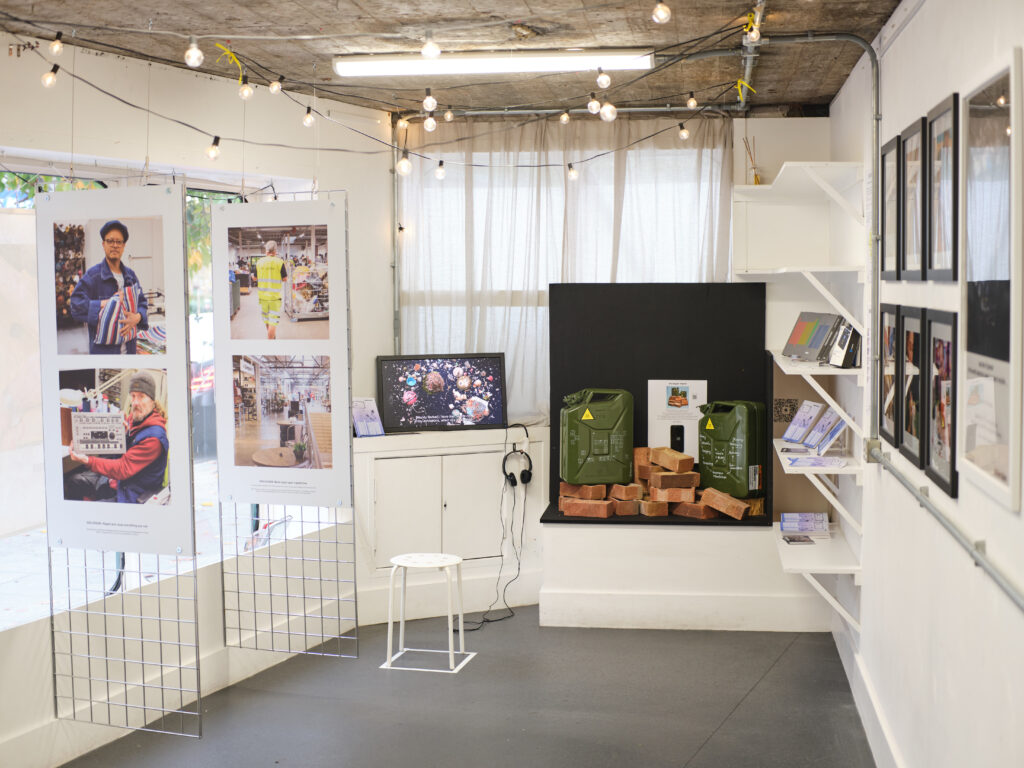

I am fortunate to meet many like-minded people. It is clear that they and the wider public want a better right to repair and more repair capability. We already have so many solutions from the UK, Europe and elsewhere, we just need the will to act. However, our government, our councils and the waste authorities are still slow to respond.
Thankfully, organisations like The Restart Project and Repair Cafe’s continue to support their local communities. They also continue to get media attention, which hopefully will create the ‘nudge’ needed. As a recent example West Central London Fixers – recently helped presenter Jeremy Vine get his Segway fixed, so instead of ‘skipping it’ and buying a new one for around £700, he was able to replace the batteries for around £70.
The message is a consistent one – a significant amount of our broken electronics can be fixed. We know this from surveys done at HWRCs which found nearly half of all items ‘skipped’ were either not broken or could be easily fixed. Yet, many councils simply promote ‘recycling’, which does little more than crush the items and then push them into an inefficient and costly material recovery process. Such a waste!
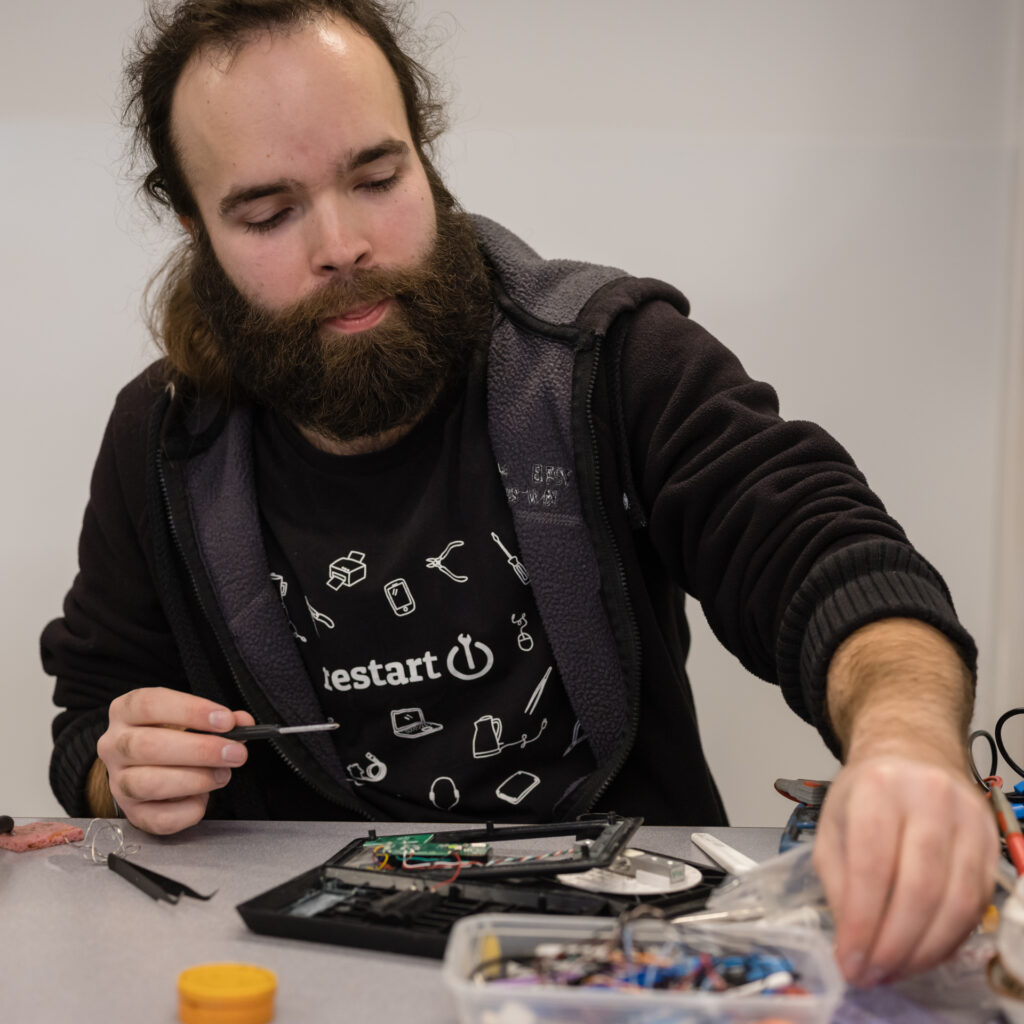
It is worth highlighting some that do support repair, my own council promote all repair events across the county, as do Medway, Lambeth, Cambridge, Maidstone, Warwick, and Derbyshire, to name a few. This is something that is simple and really costs them nothing to do. It begs the question why are all council’s not doing this?? If your council isn’t, tell them you think they should. Act now.
Then, there are initiatives, like the Repair Finder (run by Frank Schoops at Transition Marlow). This aims to link the public with the network of commercial repairers across the country. Making it easier to find someone to repair your stuff.
There are also resources for education to help the next generation learn about repair. Team Repair was founded by a team of Design Engineers from Imperial College London. who are on a mission to increase STEM uptake and tackle the e-waste crisis, using the magic of repair. Restart at School offers a 10 week enrichment programme run by teachers and educators, with support and materials provided by the Restart Project.
And if you haven’t seen the scale of the challenges, I recommend watching Buy Now: The Shopping Conspiracy, the recent Netflix documentary.
So, despite the failure of institutions, there is a lot going on and the movement is growing. As a result, I’ve updated the Resources page, adding content and improving layout to make it a little easier to find the links. Let’s hope 2025 results in some meaningful action in the UK; time to enact a better Right to Repair.
